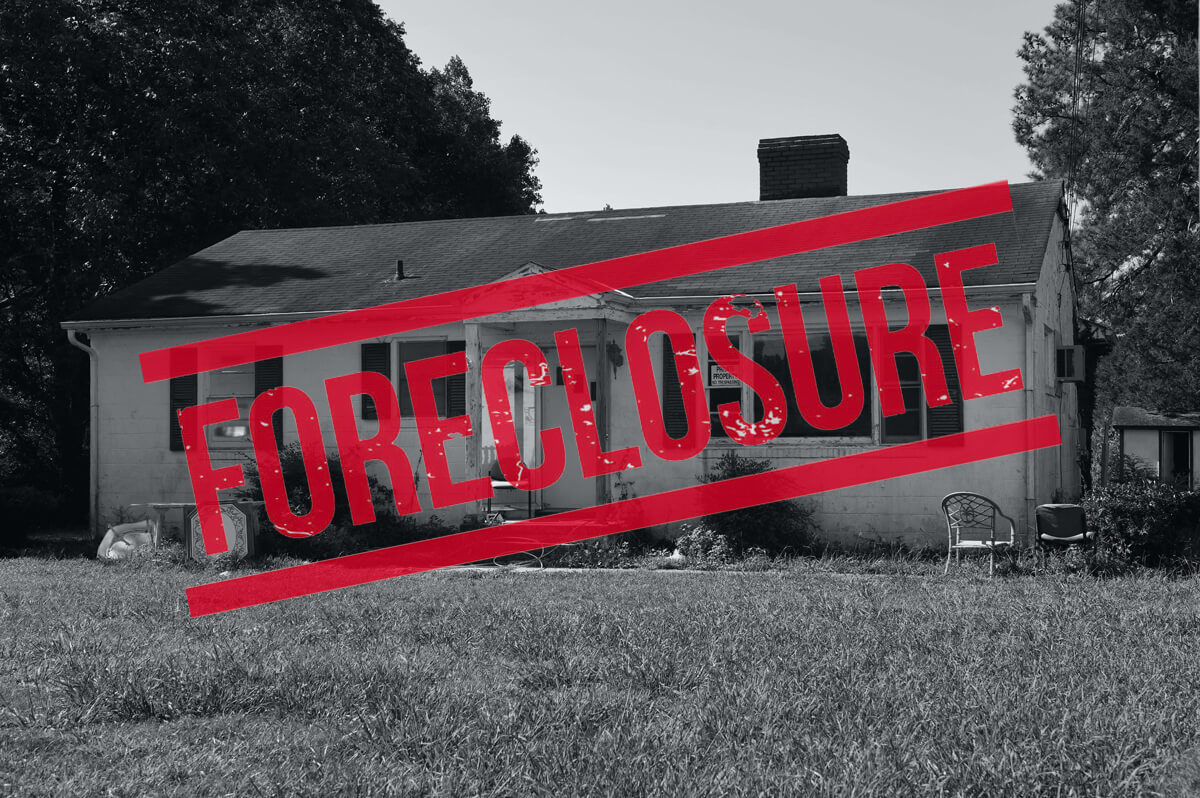
If you’re grappling with the possibility of a foreclosure on your home, there may be options available to you to stay in your home while also mitigating losses if staying in your home is no longer an option. Below, we offer tips on how to prevent foreclosure before it’s too late.
What is a foreclosure?
Foreclosure is a process that banks and other such mortgage lenders will undergo to reel in their losses when those who have borrowed from them stop making payments on their mortgages. When a borrower uses a mortgage to buy a property, they are agreeing to make monthly payments until they have paid the money back for purchasing the property. Should the borrower no longer be able to pay back the money due to issues such as job loss or other financial hardship, the lender will attempt to earn some or all of it by taking the home and then selling it.
After a home has been foreclosed on, the homeowner faces eviction. This situation, unfortunately, will then be recorded on their credit report, which will significantly impact their credit score.
Ways to Avoid Foreclosure
If you aren’t at the point where you’re missing your payments but believe you may be soon, or if you just want to be proactive and ensure there is a safety net should you fall on hard times, there are things you can do to stop a foreclosure from occurring.
It may seem obvious, but prioritizing your mortgage payments is crucial. Still, though most people who end up in foreclosure know the importance of such payments, they often do not have the money to continue paying them. Having an emergency savings account or any other form of liquid assets is also crucial. If you can, you should save up a couple of months’ worth of living expenses, so you can have something to fall back on for a little while if something bad happens.
Should you lose your income source, for example, this money can provide enough time for you to look for another job without fear of losing your home.
If the mortgage payment is beginning to decimate your budget, it could be a good idea to refinance the mortgage and lower your payments each month. This is a good idea for anyone who is still able to make their payments but foresees an issue in the future and is feeling overburdened by their house payment.
It may also be a good idea to stay in contact with your lender if you think you may soon have issues with making payments. In many cases, a lender is more likely to want to help you find a solution that helps you stay in your home rather than deal with the tedious process of foreclosure, which can be expensive and lengthy.

Six Tips for Stopping a Foreclosure
1. Work With Your lender. This is a good choice for those who had a temporary setback that stopped you from making payments on time for a while but are now capable of making payments every month without being able to pay back the missed payments. Your lender might help you with a repayment plan to get you back up to date.
2. Request Forbearance. Mortgage forbearance lets borrowers who are dealing with financial hardships stop their monthly mortgage payments for a fixed amount of time. They will be expected to use the time to get ready to keep making payments and get back on their feet. Keep in mind that you’ll need to pay back whatever amount of time you have spent in forbearance.
3. Apply for a Modified Loan. A loan modification changes the terms of your current loan. If you can’t refinance, you can try to make your payments more affordable, keeping you on the loan and in your home.
4. Talk to a HUD-Approved Counselor. If you need advice, you can talk to the Department of Housing and Urban Development to find out how to avoid foreclosure. The services are often free or available at little cost.
5. Do a Short Sale. What is a short sale in real estate? A short sale home is one that is sold for less than the amount owed on it. But how does a short sale work, and how long does a short sale take? The proceeds of the sale are given to the lender, who then will often forgive at least part of the leftover balance. It depends on the different lenders how long the process will take, and it varies from place to place.
6. Sign a Deed. This is when a homeowner transfers their home to the lender. Sometimes, avoiding foreclosure comes in the form of signing a deed in lieu of foreclosure in exchange for being released from their mortgage.
When is it too late to avoid foreclosure?
After you are already several months late on your payments without any attempts to make the account current, your lender may begin foreclosure. How this process happens and at which point you have lost the house will depend on the laws in your state. At a foreclosure sale, your house will go up for auction and the lender will use the money from the sale to try and recoup their losses. In some states, there is no redemption period, meaning you can stop the foreclosure up to the date of the sale. States with a redemption period have a fixed period time in which you can save it.
In Conclusion
While it might be tempting to try and ignore the issue, the sooner you move into action to stop a foreclosure, the better off you will be. If you want to learn more about the short sale process or short sales vs. foreclosure, contact FastCashAnyHome. Fast Cash Any Home can either buy properties quickly with no fees nor commissions – or by working with you on short sales to help you avoid issues such as ruined credit and foreclosure on your home.



